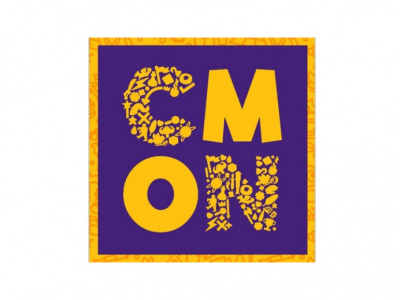On Thursday, August 19th, at Gencon, we sat down with five members of the GAMA Board of Directors-- Brian Dalrymple, Phil Lacefield, Mark MacKinnon, Will Niebling, and Martin Stever. The context was a furious debate over a penetration of the previous Board's confidential e-mail list by Ryan Dancey, recently elected to the Board and since resigned (for background on these events, see 'GAMA Governance Crisis,' 'GAMA Board Member Resigned in GAMA-Gate Protest,' 'GAMA Board, Dancey Respond,' 'GAMA Board Statement on Dancey Resignation,' 'Ryan Dancey on GAMA Board Resignation').
We talked with the GAMA Board members about the specifics of GAMA-Gate, the difficult debate surrounding those events, and the future direction of the Game Manufacturer's Association. No restrictions were placed on the questions we could ask, and every question was answered. We present the interview in four parts. In Part 3, we delve into more questions in the GAMA-Gate aftermath.
This is a GAMA Retailer Division question, so some of you may or may not know anything about it. There was an allegation that there was a GAMA Retailer Division Board motion passed that Steve Nicewarner be added to the FixGAMA.org mailing list. Is that true? Why was that motion passed? Is there any relationship between GAMA and the FixGAMA.org mailing list?
Mackinnon: I believe you're correct. Retailers did put that motion forward and vote on that motion. However, the retailers do not have the authority to direct the board. The board has a new rep from the retailer division who's being included in our discussions and is on the list. And so we are proceeding with the current GRD representative on the list; however he will be the only GRD representative on any of our mailing lists for the board because he's the single representative from the GRD.
Dalrymple: Just to clarify, the list that we have been using, the one that Ryan set up for us, has a FixGAMA.org address on it because he built it on that site. That's the reason why, because the old GAMA.org list that we had been using was not secure. But when we move everything back over the retailers will have a representative on that board. I'm a retailer also. I don't represent the retailer division, but they'll have the point of view of at least two retailers, including one who's representing the Retailer Division. [GAMA VP] Doug Ferguson is also a retailer.
Ryan Dancey released a statement on Monday [August 16th], the same day the board statement and the GAMA newsletter went out. Did he know that those were going out that day?
MacKinnon: Ryan was not aware that we were releasing a statement. Any coincidence of timing between them has nothing to do with the board's decisions or the board's communication. He released a statement; we released a statement. There was no communication between us about releasing statements.
Dalrymple: Actually, our statement was probably going to go out two or three days earlier, but we kept going back to it to make revisions to it. It just happened to get out that day because that was the day the final revision went through that everybody was happy with. And to my knowledge, none of us were even aware that Ryan was working on a statement.
Stever: I think that when you say 'happy with the statement,' I think we weren't happy as much as it was passable.
Dalrymple: We wanted to get something out.
Stever: 'Happy' is a vague term. We put our statement out; Ryan didn't know it was coming, and he put his out immediately after that. It's not coincidental; he read ours, then he put his out, but he didn't know it was on the way.
In his statement, Dancey basically argued that because the old board was, in his opinion, not releasing enough information and was dangerous to the organization, his actions were justified. What's your reaction to that argument?
Stever: Well I don't think they were releasing enough information, and I do think that the former board, of which I was a member, did make some mistakes. But I don't think it's a justifiable rationale.
Dalrymple: As a member of the previous board that did not run as a part of this slate, I think that the previous board didn't do a very good job of getting some information out. I don't think the previous board was trying to hide any information or cover up any information, they just did a very poor job, as did I think every single board previous to ours going back as far as I can remember. I don't agree with Ryan's rationale in his e-mails either. The statement that I got to read, I'm pretty much with Martin on that.
MacKinnon: Ryan released his rationale of why he did it. He also released an apology that he did it. I think it is very clear where he stands on the issue. He did it and he regrets it, and I think that's certainly a position that I can applaud.
Dancey said in his statement that nothing he alleged during the brouhaha was false. One of his allegations was that John Phythyon participated in the decision to hire himself. To the board members that were on the board when that decision was made, was that true?
Dalrymple: I can tell you, as one of the people that hired John Phythyon, that is absolutely false. John did not participate in that decision at all. He abstained from it. He was not part of the interview process. He did not participate in that decision at all. He was not privy to any of the executive committee e-mails discussing back and forth. He didn't participate in the interviews, except as an interviewee. He went through the exact same process as every other candidate went through.
Stever: I think it's a little tricky, in that John helped hire Chris Watson, and Chris Watson served at the pleasure of the executive committee, of which John Phythyon was a member, and Chris had to sign off on whoever was going to be hired. So it's a little tricky to say, 'I'm going to be out of this decision.' It puts Chris Watson in a bad spot, because now if Chris doesn't hire John Phythyon, maybe it makes one of the four guys he works for really mad. So there is an inherent conflict of interest there. Unfortunately the rest of the board wasn't brought in. Three members of the executive committee decided who to hire. And I'm not saying that hiring John was the wrong thing to do, but in my opinion, when he formally applied for the job, he should have resigned from the executive committee because that inherent conflict of interest to me is a very clear conflict of interest. The alternative to resigning might have been to say, 'In this case, let's have the decision include the whole board instead of just the three members of the board,' because again, the four members of the executive committee are working very closely together. One of them raises his hand and says, 'I want a job.' It's very tough not to give him a job, because the inherent conflict isn't that he gets to say yes or no, the conflict is, if you don't give him the job it's going to be tough to work with him going forward.
Dalrymple: Just to clarify, Chris Watson didn't have to sign off on the hire. The executive committee made the hiring decision. Chris Watson conducted the first round of interviews for the position, and gave us recommendations on a number of people. The final decision was made by the three other members of the executive committee.
Stever: Signing off was the wrong way to put it. It would be tough to hire someone Chris didn't want to work with or was unhappy with. So signing off was not the right phraseology.
MacKinnon: Just to clarify, Ryan never said that John was involved in the vote to hire him. He said that he was involved in the process. He did not vote. And I think that it could certainly be argued that given the situation, he could have very much been involved in it, given what Martin said of his status.
Lacefield: Brian was one of the four on the executive committee. You were there, man. You guys say he didn't.
This has been Part 3, for the remaining sections of this four-part interview, see:
GAMA Board of Directors Interview--Part 4







